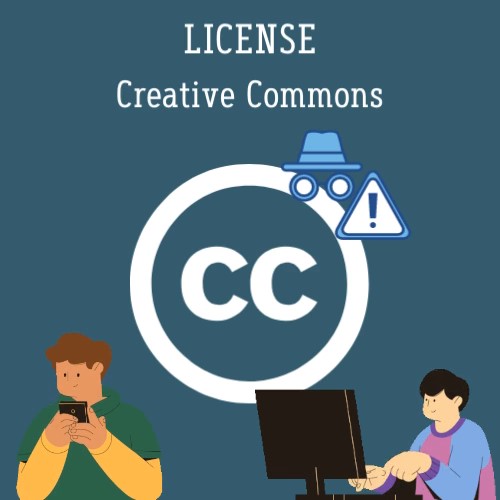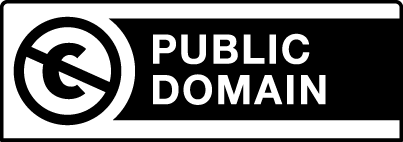
Creative Commons licenses
What is a license?
A Creative Commons license is a legal document or agreement that sets out the terms and conditions for the use of a product, trademark or patent. This license consists of the author making available his copyrighted work under certain conditions.

How does the Creative Commons license work?
The author who uses the license owns the copyright, while at the same time giving the possibility to copy and distribute the copyright, to use it under certain conditions by others, whether it is non-commercial and decides on the reproduction of the work.
When can it be used?
According to the official statement of CC:
By using the CC License, you are permitted to copy, distribute and use copyrighted works for non-commercial purposes.

Advantages and disadvantages of Creative Commons licenses

One of the advantages of the license is that there is no printing effort, since only the link to the license content is allowed. The users are among the benefits of creating belt income opportunities and business opportunities. The Creative Commons license facilitates access to foreign markets and develops a unique marketing approach.
The disadvantages of a CC license include the lack of clearly defined values or conditions that all licenses must meet, and the lack of compatibility with other free software licenses. The design of the Creative Commons licenses violates Polish law and is sometimes very problematic. These problems relate not only to compliance with copyright law, but also to the provisions of the Civil Code. Polish law does not recognise that licensing agreements are open-ended and cannot be revoked.
What do Creative Commons licenses allow?
The CC licenses allow the use of the copyright contained therein. You can apply Creative Commons licenses to any work under copyright law (e. g. book, movie, song, photo, picture, etc. ).
The author always retains the copyright, allows others to copy and distribute, but may also determine whether the use may be made only under non-commercial conditions or whether the production of dependent works may be restricted.
Creative Commons licenses are used by most young people to open up their businesses and businesses, young people use them for presentations. Users are not charged for the use of the license. Users range from individual creatives to large companies and institutions.
We use Creative Commons to strike a balance between full copyright protection and sharing of works.
In order to use the CC license, a license note must be attached. It must accompany any material made available under CC conditions. The purpose of this note is to reconcile the protection of copyright and the freedom to share content in the public.
The licence endorsement shall include:
• Indication of the author
• Specify the type of CC license with a link to explain the CC license
• Display of the song title
• Link to song source
The CC license allows you to use their tools, i. e. retain the copyright, while allowing others to copy, distribute and use your works – at least for non-commercial purposes. Each CC license ensures that the rights of the licensor are respected as long as it exists.

In summary:
Creative Commons licenses require an attribution and a license notice.
The license notice should be placed in a visible and rational place, taking into account the entire project.
The lack of attribution is a copyright infringement of the CC license developer and may end up unpleasant for you.
The exception is the CC0 license, which guarantees you the freedom to use the work. So if you want to have a holy peace, look for material that is licensed under this license.